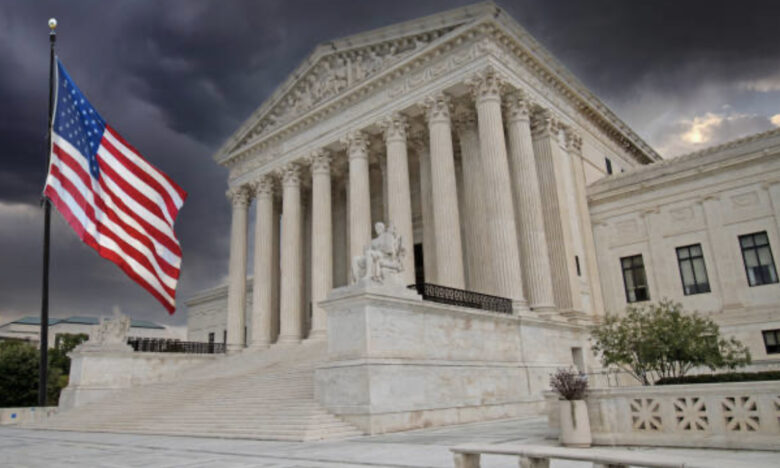AFFIRMATIVE ACTION
When I was a 21-year-old college student at Eastern Connecticut State University, I wrote a paper on affirmative action. The assignment required us to choose a civil matter and argue both for and against its necessity. As a black student, I chose to wholeheartedly support affirmative action. At that time, I wasn’t particularly academically inclined or focused on setting goals in life. Instead, I was enjoying the social aspects and party atmosphere of college. Needless to say, this topic held emotional significance for me, which motivated me to put forth a tremendous effort. I presented compelling data that made my paper highly persuasive, and I was thrilled to receive an A-, which was a significant achievement for me at the time.
During class discussions, some of my classmates, who happened to be white males, voiced their disagreement with my paper. In my younger years, I automatically assumed that their dissenting opinions stemmed from racism.
Fast forward 29 years to June 29th, 2023, when the Supreme Court announced that colleges are no longer required to consider race as a factor in the admissions process. As a former college student, current teacher, and small business owner, I fully support this decision. However, I have already encountered individuals who are upset with my agreement. Before passing judgment on my stance, I urge you to consider my perspective.
Firstly, I want to emphasize that I greatly appreciate anything that is earned rather than simply given to me. Throughout my childhood and early adulthood, I had to work diligently for everything I received. I am uncertain how I would feel if everything were handed to me without effort, and I doubt I would be in the position I am today. Affirmative action was established during a time when black communities faced severe limitations in terms of opportunities. In my opinion, segregation, particularly in education, may have been more beneficial for black individuals than integration. However, that is a topic I plan to delve into in a future blog. Stay tuned.
I was born in 1973, and affirmative action has been a part of my entire life. Yet, the reality for me and many others is that it has had no effect on our lives or, in some cases, has had a negative impact. It suggests that black people or minorities require more assistance than white men. I specifically mention white men because white women may have actually benefited from affirmative action more than any other group.
The idea of someone less qualified gaining admission to a university simply because of their race is inherently unfair. If we are ever going to overcome the negative racial culture in our country, we must acknowledge that America is a nation comprised of Americans, not divided by race, ethnicity, sexual orientation, or any other category. These divisions only foster conflict and division. I haven’t celebrated Black History Month in years because black history is not separate from American history. It is an integral part of it. This segregation of black history perpetuates finger-pointing and further animosity.
Here is the ultimate truth: without everything that has transpired in America since its inception, we would not be where we are today. Personally, I have experienced many challenges in my life, but I am content and proud to be an American. No pronoun, no ethnicity needs to be attached to that. If we were at war, in the midst of battle, none of those labels would matter. Survival would be the only thing that mattered.
I apologize for straying from the subject. I understand your perspective and wish to offer an alternative viewpoint. While the concept of admitting the best-qualified individuals based solely on merit is appealing, it is essential to consider the complexities and nuances involved in college admissions.
While American and non-American classification may seem straightforward, it is important to recognize that diversity brings unique perspectives and enriches educational experiences. By considering factors beyond citizenship, such as race, ethnicity, and background, universities aim to create a diverse and inclusive learning environment that prepares students for a multicultural society.
Drawing parallels to the Dominican Republic, where individuals identify as Dominicans without classifying themselves as black or white, is insightful. However, the United States has a long history of racial discrimination and systemic inequalities that cannot be overlooked. Affirmative action, although imperfect, seeks to address these disparities and promote equal opportunities for historically marginalized groups.
It is true that affirmative action has not achieved complete equality, but its purpose is to address existing inequalities, not perpetuate controversy. By fostering cooperation and internal competition, as you mentioned, we can encourage individuals from all backgrounds to strive for excellence. However, removing race labels entirely may inadvertently ignore the unique challenges and experiences faced by different racial and ethnic groups.
Instead, we can work towards a society where race is not a defining factor in one’s opportunities, achievements, or treatment. This involves dismantling systemic barriers, promoting equal access to resources and opportunities, and fostering inclusive environments that celebrate diversity while acknowledging our shared American identity.
In conclusion, while the ideal of merit-based admissions is appealing, it is important to recognize the historical context and ongoing challenges faced by marginalized communities. Striving for equality and inclusivity requires acknowledging and addressing these complexities rather than disregarding them. Together, we can work towards a society where individual merit is recognized while also ensuring equitable opportunities for all. Let’s just call all Americans, Americans, that’s an easy start!
Proud American here!
Thanks for reading!
Your friend
Wakime Hauser







